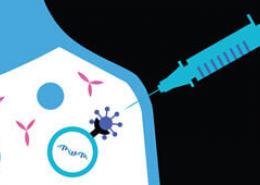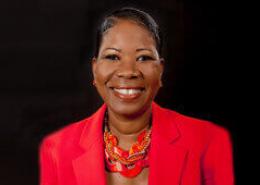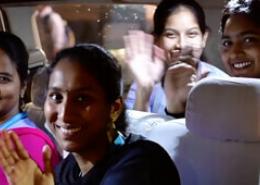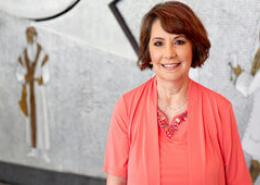MRNA VS. CONVENTIONAL VACCINES

Meet our new Chief Patient Officer, Dr. Dara Richardson-Heron

Working Together to Empower Women

Reducing Health Disparities in Latino Communities

Pfizer Women’s Resource Group

Universal vs. Single Payer Healthcare

Photo Credit: Jhpiego/Syane Luntungan
No child should lose their life to an infection, yet globally, infectious diseases remain one of the leading causes of death for children under the age of five – many of which are preventable.1
While an estimated 5.2 million children under five died in 2019, mostly from preventable and treatable causes, substantial progress has been made in reducing childhood deaths around the world, with the global rate of under-five mortality decreasing by 59% since 19901. This hopeful trend extends to Indonesia, where the national infant mortality rate significantly dropped from 61 per 1,000 live births in 1990 to 20 per 1,000 live births in 20192.
To build on Indonesia’s impressive progress, the Strengthening Primary Healthcare (SHARE) project is newly underway in the Bogor district. With support from The Pfizer Foundation* and in partnership with the Indonesia’s Ministry of Health, Jhpiego, a Johns Hopkins University affiliate, is implementing the program to improve Indonesians’ access to high-quality care that saves lives. This work has been able to continue despite the ongoing COVID-19 pandemic, as activities have been recalibrated with teams to ensure recommended safety guidelines and protocols are followed.
SHARE reaches mothers and families where they live and educates them on various aspects of their health and that of their children. The program is enabling mothers to better self-diagnose, manage common illnesses, and access care when they need it. Simultaneously, the project is strengthening the skills of community healthcare workers and village midwives by helping them to promote good health practices, reinforce prevention messages, detect newborn and childhood illnesses early, and facilitate appropriate referrals. Since its launch in 2020, SHARE has trained nearly 230 community healthcare workers from 30 villages across the Bogor district.
“The [SHARE] team is mentoring us even after the training is over. We were given assignments for home visits and counselling, and were reminded of essential information too. I find this very impressive, as nothing like this has ever happened before in my ten years of service [CE1] as a [part of the frontline health] cadre. There was also a communication session where we practiced how to deliver information effectively to mothers, which I found very helpful. Now, I feel much more confident conveying health messages to people,” said Atikah, resident of Leuweung Kolot village, Cibungbulang sub-district, Bogor.
Key to the SHARE project is Jhpiego’s approach to put clients and providers at the center of the program design. By redefining the local health center – known as “puskesmas” – as a hub of quality health information and prevention services, rather than only a place to visit when children and families are sick, healthcare systems can cater directly to the needs of the community. By creating hubs of quality health information and services, Jhpiego is able to hold capacity-building trainings with frontline workers.
“We found human-centered design unifies minds and builds solutions. Together, we looked into the root cause of various problems and agreed on common ground before starting to ideate on possible solutions,” said Ibu Dewi, village midwife from Leuwisadeng sub-district, Bogor.
The project is also developing a mobile application prototype to strengthen integrated management of childhood illnesses and referral systems for sick newborns and children. This application will connect community healthcare workers, village midwives and the primary health center when warning signs are identified during home visits, so that timely and appropriate actions can be taken.
All these efforts share a common aim: educate and engage clients and community-level providers in managing their healthcare, and strengthening coordination and continuity across the primary health care system. The success of this approach and the shared learning along the way will help offer a path forward to scale up winning strategies to additional districts and health conditions. In this way, today’s advancements in Bogor will continue to expand access to high-quality care for decades to come, positively impacting the future of families throughout the region, and helping to build a world safer from infection.
Learn more about our commitment to global health here.
*The Pfizer Foundation is a charitable organization established by Pfizer Inc. It is a separate legal entity from Pfizer Inc. with distinct legal restrictions.
References:
Source: Read Full Article
